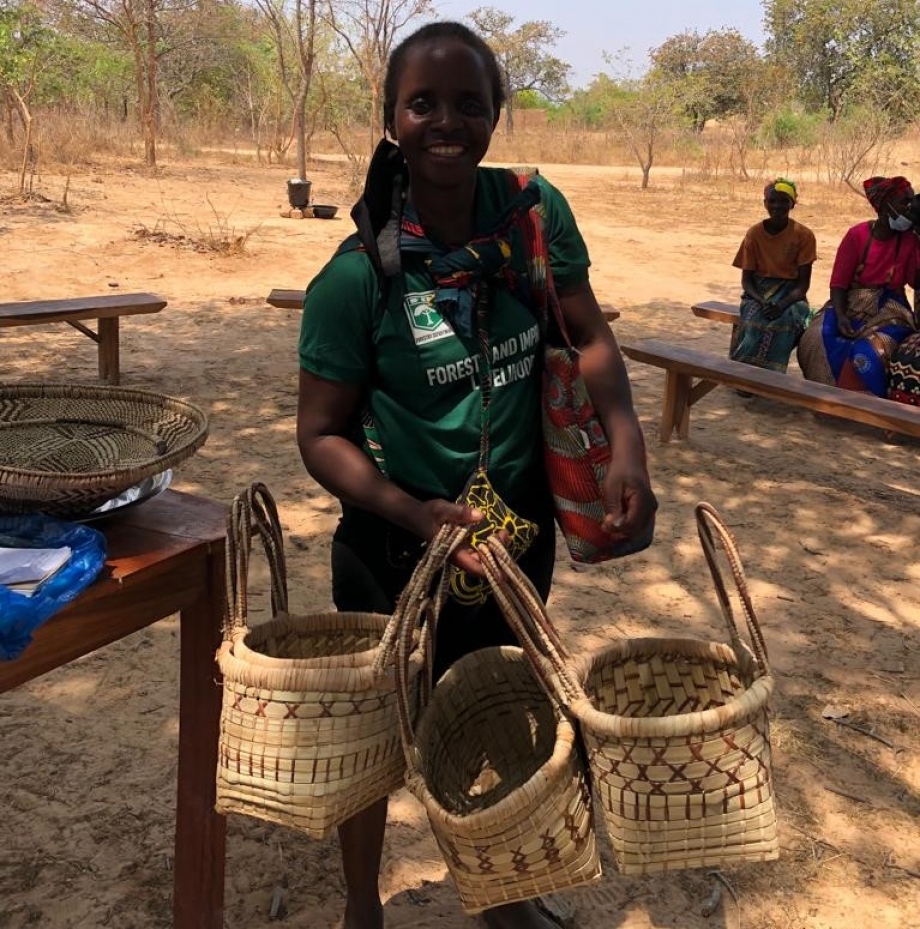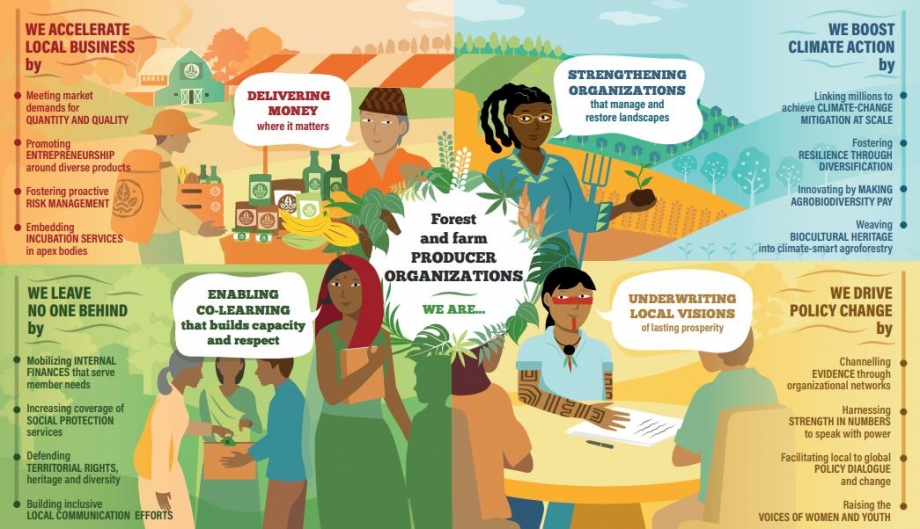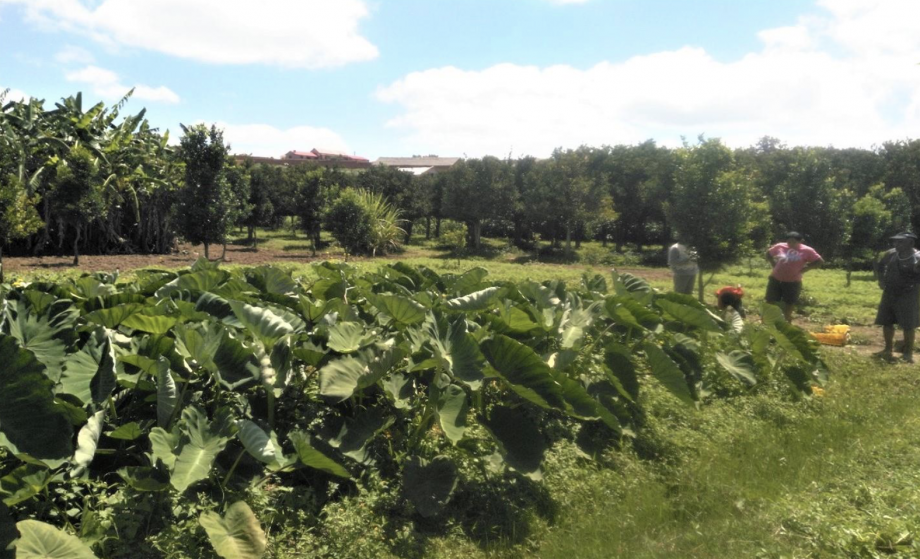Cuestiones clave

Smallholders and Indigenous Peoples maintain most of the world’s remaining agrobiodiversity. Forest and farm producer organisations (FFPOs) and Indigenous Peoples and local community groups have developed at least five strategies and 18 tactics to incentivise and sustain agrobiodiversity conservation. It is time that governments and official development partners offer them ...

The annual Seed Fair "Muyu Raymi 2023" created synergies between Indigenous women producer groups, strenghtened their cultural identity and promoted the ancestral agricultural systems "Chakra" recently recognized as Globally Important Agricultural Heritage Systems (GIAHS) by FAO. The fair was a precious opportunity to exchange seed varieties and experiences between rural communities.

Following three days of intensive discussions and collaborative efforts, the workshop has concluded with a landmark declaration that underscores the commitment of Forest and Farm Producer Organizations (FFPOs) to play a pivotal role in landscape and forest restoration.

The MA&D methodology is based on participatory principles and empowerment. It uses a facilitative approach to help ‘entrepreneurs’ rather than ‘beneficiaries’ know and control all elements of their enterprises. The fully participatory training online course runs over four 2.5-hour sessions.
FFF welcomes its new Manager
09/08/2023
09/08/2023

Mr Luis Miguel Aparicio, a forest engineer, has broad international experience from a range of international organizations, government agencies and the private sector. Luis Miguel shares FFF's commitment and dedication to improving the living of forest and farm producers globally.

Showcasing exciting developments in the realm of finance, a recent report from the International Institute for Environment and Development (IIED) explores how a succesful model is transforming lives in Siakacheka, a community in the Choma district of Zambia.
New FFF flyer
07/07/2023
07/07/2023

FFF works with smallholders, rural women, local communities and Indigenous Peoples to strengthen their organizations at the national, regional and global levels as a means for achieving the Sustainable Development Goals, responding to climate change and biodiversity loss.
New Infographic on the FFF Approach
23/06/2023
23/06/2023

The Forest and Farm Facility supports forest and farm producer organizations in their efforts to stimulate entrepreneurship and benefit their members. It supports on-the-ground operations locally, nationally, regionally and globally through grants, trainings, data collection and advocacy.

New case study from IIED and CDNTA highlights how forest and farm producer organizations unite producers in local forest and farm landscapes
A tale of community empowerment and sustainable growth is unfolding in Zambia's Choma District's forest landscapes, where a group of dedicated smallholder farmers have united under the banner of ...
Fostering Farmer-to-Farmer Knowledge Transfer in Madagascar's Sustainable Development Efforts
24/05/2023
24/05/2023

New study by IIED highlights how agrobiodiversity is taking centre stage for food security and sustainable development in Madagascar.
In the Malagasy highlands, cultivated hills are interspersed with rice-growing valleys and lowlands. Rice is a staple crop in Madagascar and an important part of local food security; however, agricultural-driven biodiversity ...
